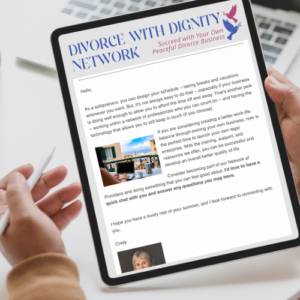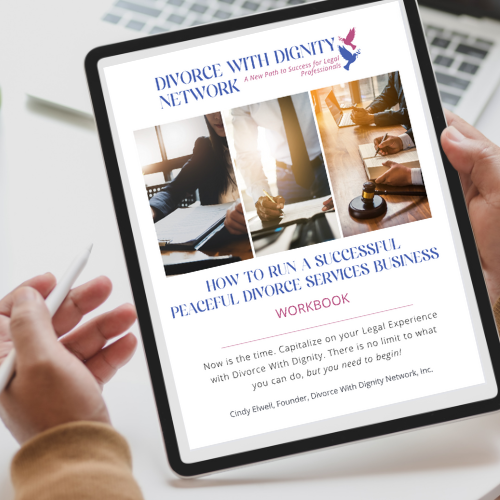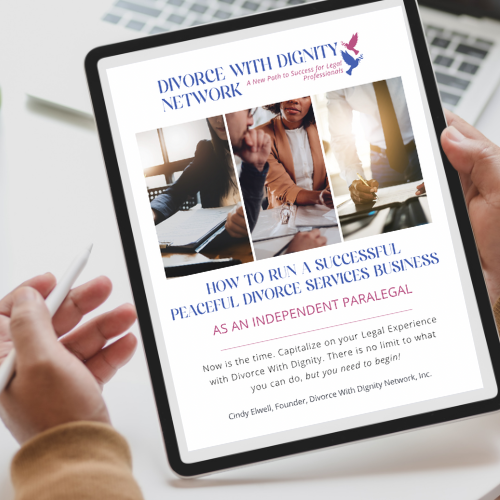Did your brain just shut down upon reading those two words: business plan? If so, you’re not alone. The thought of creating a business plan can leave many feeling overwhelmed or just lost as to where to even begin. And then, there are the questions: do I really need one or do I have to have one?
The simple answer to those questions is “no.” Just like you don’t really need a budget; you can fly blind and go where the wind blows you — or just work with the plan and budget that you have in your head. One of the problems with that approach, however, is that… it’s in your head — where no one else has access to it. And… think you’ll remember what you set out to do, once things really get moving?? If you do, you’re in the minority. The rest of us start chasing shiny objects, greasing squeaky wheels, and putting out fires — and we tend to lose sight of the original (or most recent) vision and plan.
For simple product or service businesses, a one-page business plan is often enough and can provide clarity while setting the direction and action steps that will help to launch or grow your business. Aside from that fact that the process of creating a plan forces you to get really focused, chart your course, and put into print the critical elements of your business, including your goals and vision, it also gives you a “living, breathing document” that you can quickly and regularly revisit (review and revise) as your business blossoms and grows. It pushes you into a higher level of thinking, planning, and strategizing. And, it gives you something to share with others to receive valuable feedback or create a shared vision amongst your team.
According to Cynthia Riggs (“The Biz Diva”), an absolute pro, with 35-plus years of entrepreneurial success:
[A business plan] …helps you leverage your strengths, overcome obstacles and consciously chart a course that achieves your goals. What do you want? Higher profits? More productive employees? Fortune 500 accounts? A fun workplace? A business plan helps you make ideals like these a reality.
Your one-page business plan will outline your vision, mission, objectives, strategies, and concise action plans. Solid financial and marketing plans can require much more detail and are usually included in a lengthier business plan, but a high-level plan is what will be the focus here — so if the financial piece is the biggest part that’s holding you back, you can take a breath and put that off (for now).
[A one-page business plan] …is different from a traditional, lengthy business plan. Its brevity and laser-like focus make it infinitely more useful. – Cynthia Riggs
Peaceful Divorce Business (PDB) puts each new Provider through Cynthia’s 5-week One Page Business Plan® Webinar as part of the many onboarding and ongoing support benefits she offers. To learn more about how PDB sets up Providers for success, please schedule your Opportunity Evaluation.
***
About Cynthia Riggs “The Biz Diva”
Cynthia Riggs, the Business Diva, is a lifestyle entrepreneur, having successfully started and exited three profitable businesses, including Making It Big, her multi-million dollar mail order/catalog company, which she sold in 2004. She then launched her fourth enterprise, Biz Diva, working as a consultant and teacher of business development to small and micro business owners.
Cynthia’s conviction that every entrepreneur needs support, problem solving opportunities, and a useable business plan culminated in her certification as a One Page Business Plan consultant. For the past 15 years, the One Page Business Plan has been a cornerstone of her consulting practice. She works with small groups online and in person. Currently, discounted COVID pricing allows for easy accessibility.
If you’d like to work with Cynthia directly, you can connect with her on LinkedIn and on her Facebook Page. To learn more about creating your one-page business plan and the work that Cynthia does to help you “Create Your Road Map to Success,” visit her website.
***
The author of this blog is not an attorney or accountant and the information contained in these blogs should not be considered legal or accounting advice. Please do not hesitate to seek the advice of an attorney and/or accountant if you have any legal or accounting questions.






